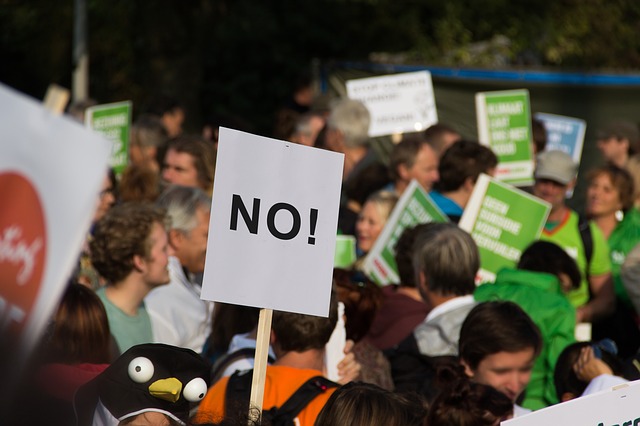Capitalism is really the brand of our free market economic system which has been the driving force for American commercial success since its founding. But is it working as a fair and just system for all today? Millennials don’t think so, especially after the 2008 recession. And now the new tax bill may become a tipping point for the millennials’ frustration.
Three years ago I wrote an article that reflected these concerns, “Why capitalism must be rebranded–and how.” Since then, several events have further sowed suspicion among millennials about the fairness of capitalism: e.g. the surge of popularity of Bernie Sanders and his liberal promises among millennials; the impulsive style and conservative views of Trump alienating most of the educated young; the growing distrust of Congress, CEOs, and banks; the increase of polarization; and most recently, the new tax bill.
Recent polls among younger people have confirmed the lack of support for capitalism:
- A YouGov poll cited by The New York Times (December 5, 2017) found that 44% of millennials in the U.S. would rather live in a socialist country, while 42% prefer to live under capitalism (in comparison, 59% of all Americans want to live under capitalism and only 34% prefer to live in socialist country).
• A Harvard University survey of 18-29 year-olds in 2016 reported that 51% do not support capitalism, versus just 42% who said they do support it.
• A 2015 Reason-Rupe poll found that 58% of millennials approved of socialism, which was an increase from a 2011 Pew Research poll that found 49% had a positive view of it.
It is important to understand the context in which millennials perceive and understand capitalism. For decades for example, we looked at capitalism as a much better alternative to the planned economy of the Soviet Union, which was interpreted as a failed socialist system. After its fall in 1991, there was no meaningful benchmark, and the European countries were even becoming “less socialistic.”
Millennials are not necessarily against the free enterprise system; in fact a CBS/The New York Times survey in 2016 reported that only 16% of them could accurately define socialism. However, they have become more sensitive to the emerging flaws of capitalism as a valued brand. They perceive it more as “crony capitalism,” as many of our industries have become more oligarchic in nature. Millennials certainly do not want a Soviet-style of socialism; this Reason-Rupe survey found only 32% of millennials said a “government-managed economy” was a good thing.
Increasingly millennials simply feel left out, and that capitalism has been particularly unfair to them. The 2008 recession exacerbated this view. The Economist reported that the top 1% of households in the world now own more than half of all global wealth, but the millennials have amassed 46% less wealth by 2017 compared to 2007.
Bernie Sanders acted as a catalyst for highlighting many of these perceived problems of capitalism for millennials, e.g. concerns over the skyrocketing college tuition and hence his plea for free education for many; problems with healthcare (this Harvard poll reported that 48% of millennials agreed that “basic health insurance is a right for all people”); the inequalities of income distribution where millennials are most seriously affected; climate change; corruption; and his core message of the top 1% unfairly taking advantage of the “cronyist” capitalist system.
The new tax bill is now seen by many millennials as the “last straw,” in that it is so tilted to big business and the wealthy, limits healthcare coverage, and will cut many tax benefits by 2025.
Millennials are indeed different, and we all must realize this and adjust. In particular, they are interested in profits, but also have a deep sense of purpose and prefer working at companies that give back to society. It is important to recognize that this millennials segment is now the largest voting bloc, and they will become the dominant force in both business and politics soon.
The essence of branding is that it must provide credible and relevant value for its customers. Increasingly, millennials are viewing the capitalism brand as an unjust system that has evolved and shaped by wealth-driven tycoons at the expense of their own pocketbooks and future. It is not an issue of challenging the basic free market principles, which they still support, but how capitalism has been practiced for selfish reasons and has left millennials in the dust. This new tax bill may be a pyrrhic victory for big business, but a loser in the long run for all Americans once this generation becomes the segment in control.








